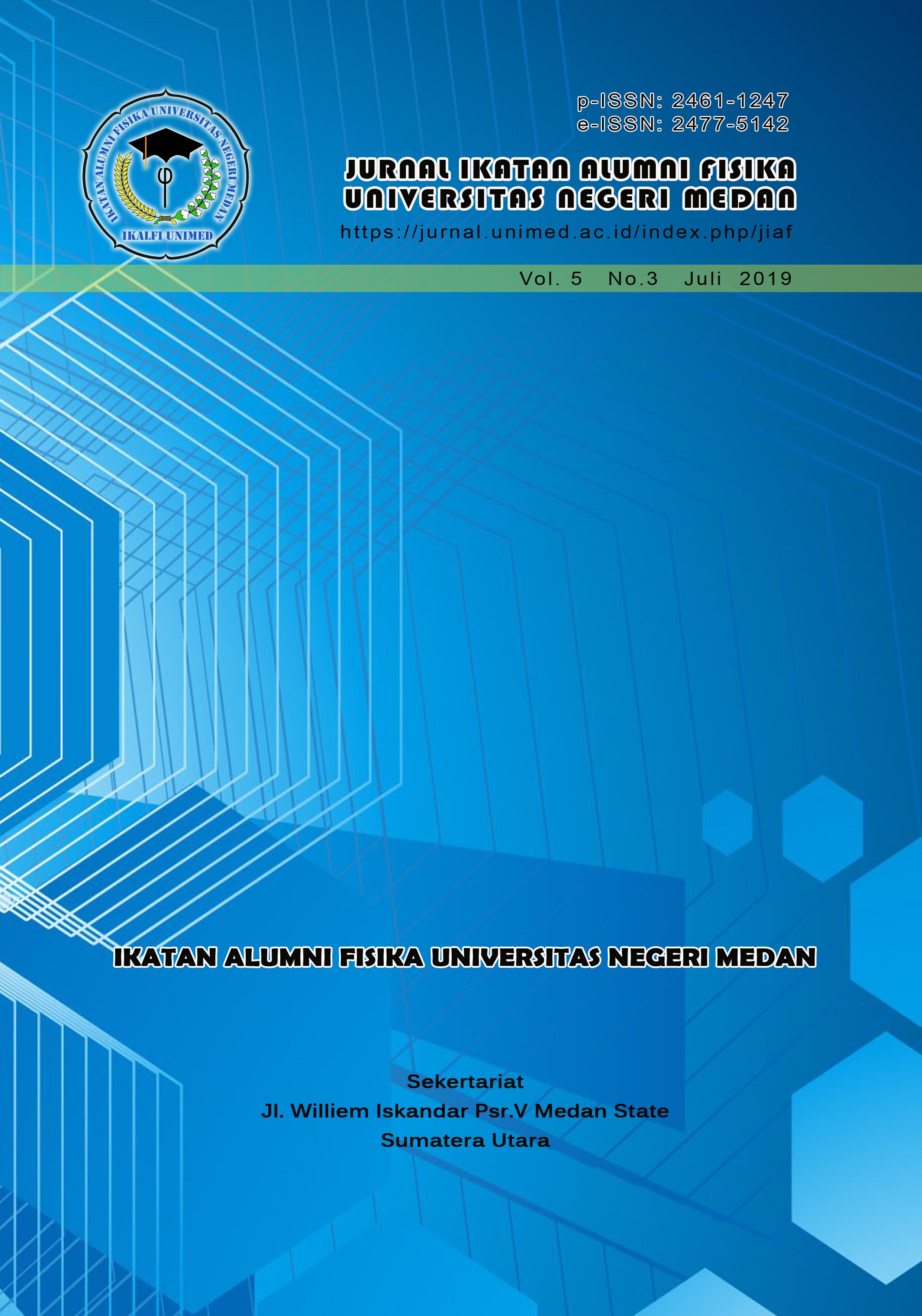Efek Model Pembelajaran Scientific Inquiry dalam Meningkatkan Kemampuan Berpikir Kritis Siswa di SMA N 1 Percut Sei Tuan
DOI:
https://doi.org/10.24114/jiaf.v5i3.14695Keywords:
Scientific Inquiry, Kemampuan Berpikir Kritis, Usaha dan EnergiAbstract
Penelitian ini bertujuan untuk mengetahui efek dari penerapan model pembelajaran Scientific Inquiry terhadap kemampuan berpikir kritis siswa pada materi pokok Usaha dan Energi di kelas X semester II SMA Negeri 1 Percut Sei Tuan T.P. 2018/2019. Jenis penelitian ini adalah quasi experiment dengan populasi seluruh siswa kelas X MIPA SMA Negeri 1 Percut Sei Tuan yang berjumlah 6 kelas. Sampel penelitian ini terdiri dari 2 kelas yang ditentukan dengan teknik cluster random sampling, yaitu kelas X MIPA 5 sebagai kelas eksperimen dengan menggunakan model pembelajaran Scientific Inquiry dan kelas X MIPA 6 sebagai kelas kontrol dengan menggunakan pembelajaran konvensional. Instrumen yang digunakan dalam penelitian ini yaitu instrumen tes kemampuan berpikir kritis berjumlah 6 soal essay test yang telah divalidasi oleh 3 orang validator dan telah dilakukan uji validitas butir, uji reliabilitas, uji tingkat kesukaran, dan uji daya pembeda. Kelas eksperimen memperoleh nilai rata-rata pretest 22.57 dan nilai rata-rata posttest 78.75, Kelas kontrol memperoleh nilai rata-rata pretest 22.99 dan nilai rata-rata posttest 50.46. Pada uji t dua pihak memperoleh nilai thitung < ttabel yaitu 0.38 < 2.002 maka H0 diterima, berarti kedua kelas memiliki kemampuan awal yang sama. Kemudian hasil uji t satu pihak memperoleh thitung > ttabel yaitu 10.54 > 1.671 sehingga Ha diterima, Sehingga diperoleh kesimpulan bahwa adanya efek yang signifikan dari penerapan model pembelajaran Scientific Inquiry terhadap kemampuan berpikir kritis siswa pada materi pokok Usaha dan Energi di kelas X semester II SMA Negeri 1 Percut Sei Tuan T.P. 2018/2019.References
Arini, w., & Juliadi, F. (2018). Analisis Kemampuan Berpikir Kritis pada Mata Pelajaran Fisika untuk Pokok Bahasan Vektor Siswa Kelas X SMA N 4 Lubuklinggau, Sumatera Selatan. Jurnal Berkala Fisika Indonesia. 10(1): 1-11.
Fuad, N. M., Zubaidah, S., Manahal, S., & Suarsini, E. (2017). Improving Junior High School™s Critical Thinking Skills Based on Test Three Different Models of Learning. International Journal of Instruction. 10(1): 101-116.
Greenwaid, R. R., & Quitadamo, I. J. (2014). Using Inquiry based Teaching to Build Critical Thinking Skills and Intellectual Engagement in an Undergraduate Neuroanatomy Course. Journal of Undergraduate Neuroscience Education. 12(2): 100-106.
Joyce, B., Weil, M., & Calhoun, E. (2009). Model-Model Pengajaran. (Edisi Kedelapan).Terj. A. Fuwaid & A. Mirza. Yokyakarta: Pustaka Belajar.
Sani, R. A. (2013). Inovasi Pembelajaran. Jakarta: Bumi Aksara.
Santos, L. F. (2017). The Role of Critical Thinking in Science Education. Journal of Education and Practice. 8(20): 159-173.
Trianto. (2009). Mendesain Model Pembelajaran Inovetif-Progresif. Jakarta: Kencana Prenada Media group.
Younis, Bilal K. (2017).The Effects of Scientific Inquiry Simulations on Students Higher Order Thinking Skills of Chemical Reaction and Attitude towards Chemistry. American Journal of Educational Research. 5(11): 1158-1161.
Downloads
Published
Issue
Section
License
Copyright (c) 2019 JURNAL IKATAN ALUMNI FISIKA UNIVERSITAS NEGERI MEDAN

This work is licensed under a Creative Commons Attribution 4.0 International License.
Authors who publish with this journal agree to the following terms:- Authors retain copyright and grant the journal right of first publication with the work simultaneously licensed under a Creative Commons Attribution License that allows others to share the work with an acknowledgement of the work's authorship and initial publication in this journal.
- Authors are able to enter into separate, additional contractual arrangements for the non-exclusive distribution of the journal's published version of the work (e.g., post it to an institutional repository or publish it in a book), with an acknowledgement of its initial publication in this journal.
- Authors are permitted and encouraged to post their work online (e.g., in institutional repositories or on their website) prior to and during the submission process, as it can lead to productive exchanges, as well as earlier and greater citation of published work (See The Effect of Open Access).

